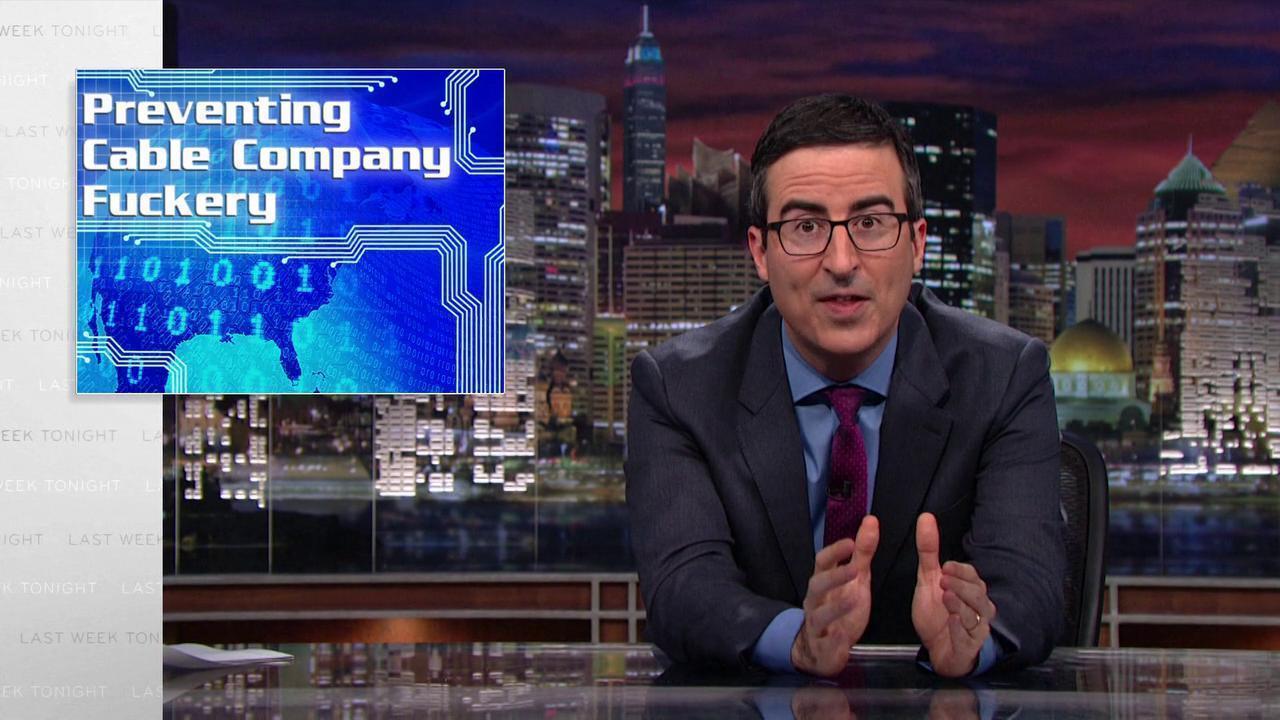Affiliate links on Android Authority may earn us a commission.Learn more.
Broadband providers hate regulations, except when it helps them
July 03, 2025
Did you all hear what net neutrality is really about? It’s about regulations, regulations and more regulations. See, if you repeat the word “regulations” and imply that the government is coming to your door to help you decide which broadband speeds you want, then you finally will see how broadband companies and lobbyists are painting the net neutrality debate.
In reality, the debate is simply about whether or not broadband providers should be able to dictate what sites and speeds that customers should have on the internet. I continue to read story after story after story from the broadband providers themselves or theirpaid-off lobbyists(literally, they get their money from the broadband providers) in which they use the word “regulations” as much as possible for no reason other than to try and scare people into thinking that the government will soon decide their broadband speeds.

The one argument that I continue to take issue with is that while these broadband providers complain about the government, they also use that very same government to receive record tax breaks and change local and federal laws that they don’t like. In the last decade, broadband providers have become powers in Washington DC with massive donation lists that help the providers push through legislation at all levels of government.
Essentially, broadband providers want the government to stay out of the internet. But keep the laws in place that help them benefit financially in ways that no other businesses get in this country. If they want the federal government to stop “regulating”, then shouldn’t federal and state governments actually stop regulating the telecom industry? Or my guess is that the broadband providers would not object to stopping ALL regulations but just the ones that hurt them. How convenient.

Below-The-Line Fees
All broadband providers love using the big-bad federal government as a reason to raise rates yet many of the so-called fees attached to your billaren’t even requiredby the federal government. They are simply added to your bill so that the provider can raise a few more dollars. StopTheCap hasdone a fantastic jobgoing over the numerous charges that AT&T customers may see on their monthly bills. As the site notes, many of the charges have nothing to do with taxes and all to do with AT&T wanting more money, yet you wouldn’t know that based on the name of the charges.
Who here thinks that broadband providers would allow for a radical change in billing rules that explain clearly what is mandated by the government and what is not? Good luck getting that through Washington DC.

Also, let’s not forget how much AT&T and Verizon love using the big-bad federal government come tax time. Listen, I have no issue with businesses using the federal tax code to help them save as much money as possible. But, does anyone else find it odd that AT&T and Verizon use it to the extreme and then complain about the same government?
According to the Citizens for Tax Justice and the Institute on Taxation and Economic Policy, Verizon and AT&Tenjoy business benefitsthat few others get in the country. In fact, the telecom industry as a whole paid an effective tax rate of 8.2 percent during the 2008–2010 period while other businesses were hit with the typical 35 percent corporate tax rate.

AsFree Press notes:
That damn government giving them billions in tax breaks! Thank goodness AT&T’s executive officers areeligible to billtheir own company $14,000 a year for their own income tax preparations.
Municipal Broadband Laws
Broadband providers are currently outraged at the notion of the government having any say in the net neutrality debate. Who are they to tell businesses what they can or can’t do? Except when the government is putting in place actual “restrictions” which help only the local incumbent internet provider by cutting out true competition.
According to the Center for Public Integrity, broadband giantshave spent millions of dollarsover the last decade to “lobby state legislatures, influence state elections and buy research to try to stop the spread of public Internet services that often offer faster speeds at cheaper rates.”

Size Advantages
One of the ways that broadband providers like Comcast trap cities into a monopoly-like system is through their “most-favored nation” clauses. Essentially, a most-favored nation clause allows an incumbent broadband provider to renegotiate the terms of a city franchise agreement if a new broadband provider receives a franchise agreement and has better financial terms included in the agreement.
In reality, cable and broadband providers use it as a way to threaten a city with a lawsuit if they feel that competition may be coming their way. For example, when Bright House was trying to stop Verizon from entering their areas of Florida, they threatened tosue the cityif they accepted Verizon’s proposed franchise agreement. When Mediacom was forced to deal with an actual competitor in one Minnesota city, theydid in fact sue the cityfor no reason other than the city accepted another company’s proposed franchise agreement.
Situations like these have gotten so abused around the country that the Department of Justicespent years probingwhether there are even any legitimate business reasons for such terms.
Thank you for being part of our community. Read ourComment Policybefore posting.